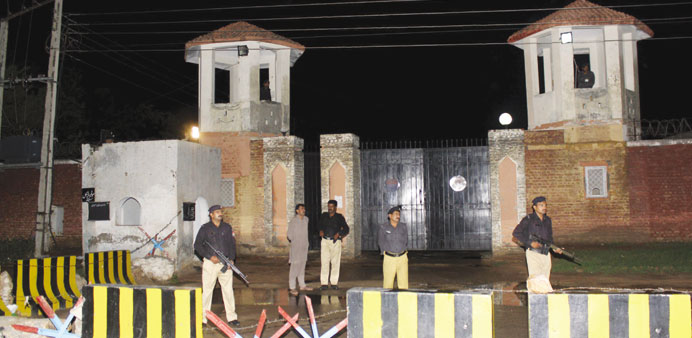The district jail in Sargodha.
DPA/Islamabad
Pakistan authorities yesterday executed a man for a murder that rights groups and his family said he committed as a minor, which would have ruled out the death penalty.
Ansar Iqbal’s defence said he was just 15 when he was arrested for a murder committed that year. Under Pakistani law, anyone under 18 at the time of the crime cannot face the death penalty.
Britain-based rights group Reprieve said a birth certificate and school documents proving his age were dismissed by the court.
His family did not respond to a request for comment, but had argued that Iqbal was under the age of legal majority at the time of the offence, jail official Barkat Ali said.
He was hanged in Sargodha’s district jail in the eastern province of Punjab, according to another jail official Muhammad Akmal. “The body has been already handed over to the relatives for burial.”
Reprieve had issued a last-minute appeal to president Mamnoon Hussain for a pardon. “He must not ignore the law and the evidence any longer,” it said online.
Akmal said that the convict was in his early 20s at the time of arrest and prosecuted according to the law. “If he was a minor, then the lawyer should have raised the issue at the time of trial,” he said, contradicting the assertion that it was raised.
Another convict Shafqat Hussain was executed last month despite his defence’s argument that he was 14 at the time of the murder.
Hamza Hassan, of the Society for Protection of the Rights of Children, said there are laws to protect underage suspects, but they need better implementation across the board.
“The law demands separate jails, special transportation vans, separate trial of juveniles and free legal aid to them, but these provisions are frequently violated,” along with the rights and dignity of the country’s 1,450 underage prisoners, he said after Hussain’s execution.
Juvenile suspects often lack documentation or knowledge of the law to bolster their defence, even with legal counsel, experts say.
The country for years had a moratorium on executions, leaving over 8,000 death row prisoners according to the interior ministry.
It resumed hangings in December after the Taliban stormed a school and killed 150 people, mostly students. Around 240 convicts have been executed since then, the Human Rights Commission of Pakistan said.

